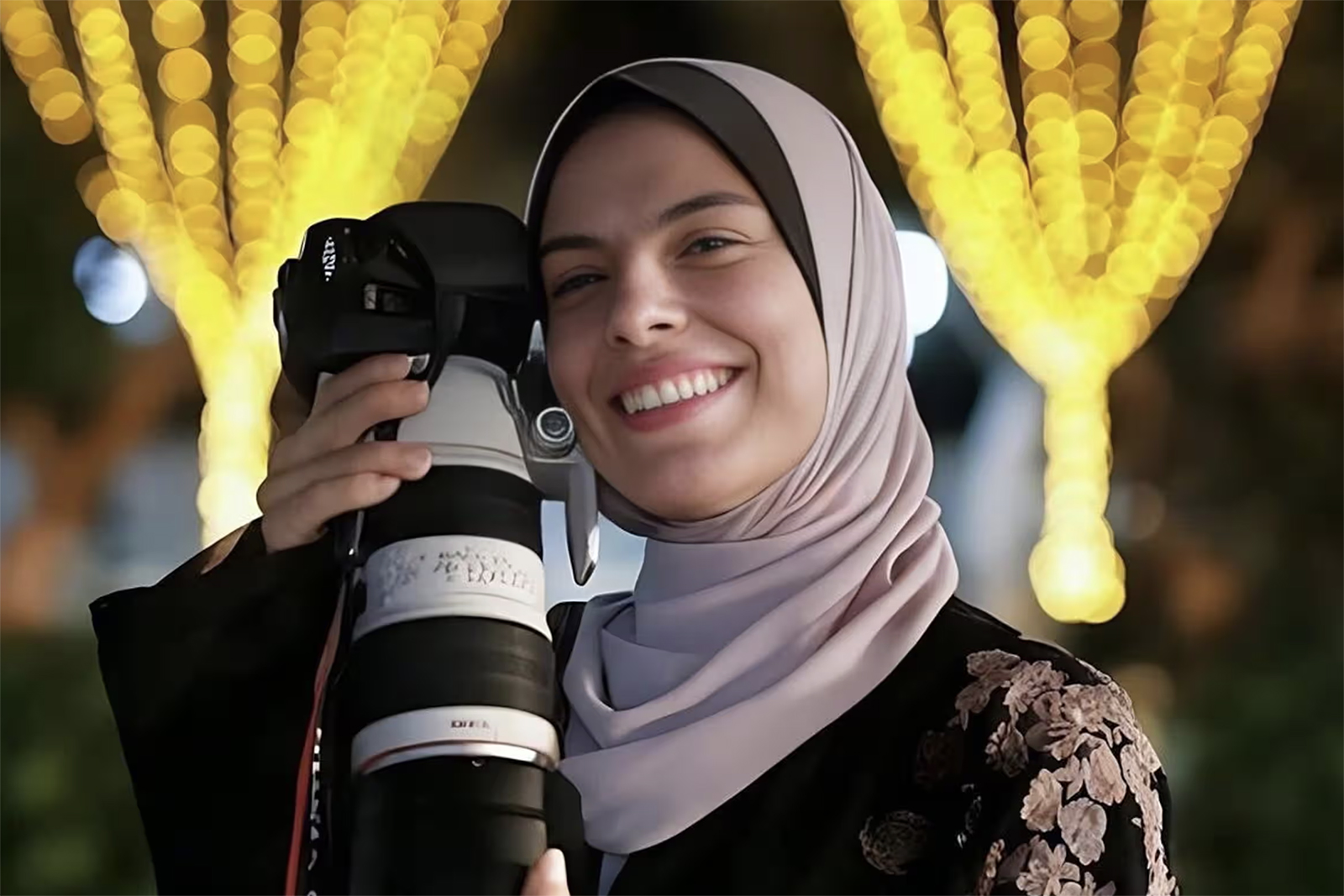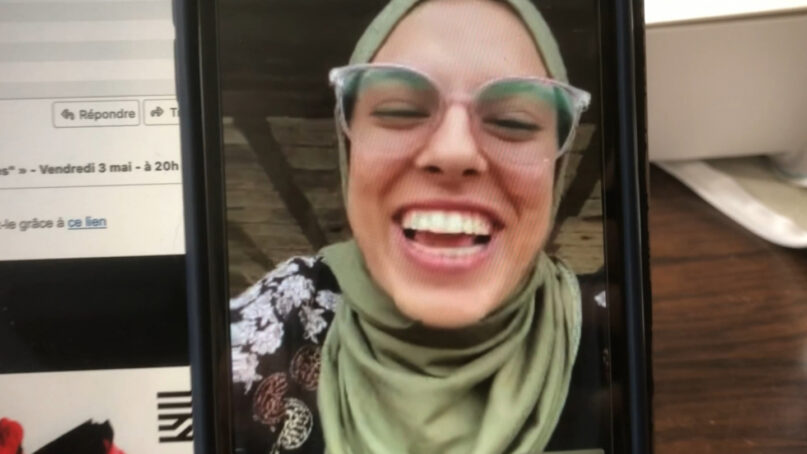
(RNS) — “If I die, I want a loud death,” she once said. “An impact that will remain through time.”
Fatma Hassona’s words, spoken not with arrogance but with purpose, were not simply a wish. They were a reflection of how she lived. A life of purpose. A life of vision. A life rooted in truth.
On April 16, just days before her wedding, Fatma (whose name is also spelled Fatima Hassouna) was killed by an Israeli airstrike on her family home in the Al-Touffah neighborhood of Gaza City. Ten members of her family were killed with her, including her pregnant sister.
She died holding her camera, just as she had lived, documenting the suffering of her people with a lens that refused to blink, even when the world did.
Fatma was no ordinary photojournalist. She, like so many of the murdered journalists before her, was part of the conscience of Gaza. Through her work, she gave the world access to the unbearable: Children mourning their parents. Neighborhoods reduced to rubble. Mothers baking bread in bombed-out courtyards.
She also captured life in its quiet, beautiful resistance. Children playing in narrow alleyways. Couples smiling through grief. A people holding onto dignity even as everything around them is taken.
Her photographs carried both the weight of pain and the stubbornness of hope. She reminded us that Palestinians are not just victims, but survivors, scholars, parents, poets and, yes, journalists. They live, they love, and they resist the machinery of erasure with every breath they are permitted.

Fatma Hassona is featured in Sepideh Farsi’s documentary “Put Your Soul on Your Hand and Walk.” (Image courtesy Sepideh Farsi)
Fatma was also the subject of a documentary titled “Put Your Soul on Your Hand and Walk,” by Sepideh Farsi, which is scheduled to premiere at the Cannes Film Festival in May. It was meant to tell the story of Gaza through Fatma’s eyes. Now, it will carry the memory of her voice. Her story will live in every frame, but the crime is that she won’t be here to hear her name being celebrated for the bold truth she dared to tell — not with a speech, but with a lens. She ran toward danger so the world could not look away.
I felt compelled to write about her to honor her wishes, but let’s be clear: Fatma’s tragic death is not an anomaly. Since October 2023, more than 200 journalists have been killed in Gaza. Gaza is now the deadliest place in the world for members of the press. This is no coincidence, nor are the journalists’ deaths collateral damage: This is a deliberate war on truth. Because when truth is powerful, it becomes dangerous. And Fatma was dangerous to the lie.
Her loss hit hard not only because of who she was, but when she was taken. In the days before her wedding, a day of joy, Fatma was bombed and buried beneath the ruins of her home. Her wedding dress untouched. Her camera still.
In Islam, we believe that those killed unjustly while standing for truth are not dead. They are martyrs flying through gardens of paradise away from the ugliness of this world. We pray that Fatma has already stepped into gardens greater than the one she had hoped to walk through in this world.
But we must not only grieve her. We must also carry her.
Her lens is no longer in her hands, but it cannot be allowed to go dark. Her voice, silenced by a missile, must now echo in ours. Her cause, which was the cause of truth, must now become our cause, too.
Fatma’s power was in her ability to humanize what others try so hard to erase. In a world where Palestinians are turned into statistics, she gave them light, names and presence. Her work was sacred resistance against a campaign of invisibility.
To honor Fatma is to honor everyone who has been targeted for telling the truth. It is to continue telling it ourselves, even when it is costly. Especially when it is costly.
Because if we are too afraid to say “Free Palestine,” what are we doing with our freedom?
Fatma is now alive in another world, free from the cruelty of the genocide. But here, among us, her story must not fade. We must refuse to normalize the deaths of journalists. We must not allow those who benefit from her silence to rewrite the story.
We heard your call to make your death loud oh Fatma.
May your loud death be an even louder reminder that truth, even under rubble, shall rise.
